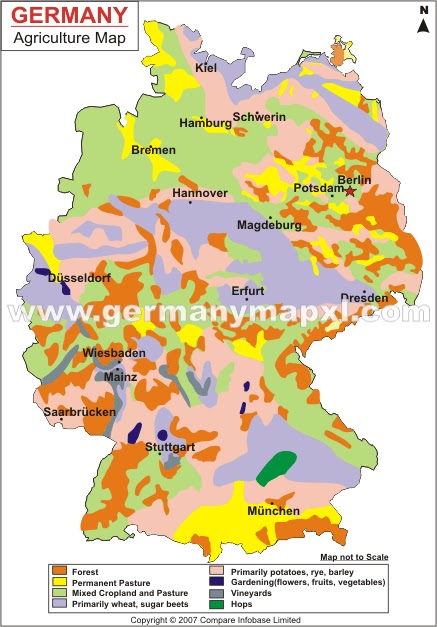I chose Agriculture as a topic to expand on regarding Industry and Business in Germany. During class presentations, most of what was talked about was industry, which made me curious if farmers were present in Germany today. Germany, indeed, has farmable land; and more than I would have ever guessed. Roughly one third of the land is fit for cultivation. Agriculture was popular in Germany before industry expanded and become a major player in Germany's economy. Today, agriculture in Germany is a small sector of the German economy.
Germany can be divided into four topographic regions; the northern part of Germany is lowland, in the center is uplands, and southern Germany is the Alpine foreland and the Alps. In the north, where the terrain is relatively flat, sugar beets are mostly grown; near the river valleys you will find vineyards; and large cities are usually surrounded by fruit orchards and vegetable farms. Since beer is well known in Germany, there must be grain crops. Which there is! And almost all of German beer is produced in Bavaria. The top crops in Germany are Sugar Beets, Wheat, Barley, and Potatoes. Even though Germany has tillable land, it is one of the largest importers of agricultural products.
The European Union agriculture reform provides financial assistance for development of agricultural land and requires good agricultural practices. Farmers using environmentally friendly practices are compensated, in recognition of their conscience farming methods.
http://www.germanymapxl.com/agriculture-map.html 10/30/12
http://www.nationsencyclopedia.com/Europe/Germany-AGRICULTURE.html 10/30/12
